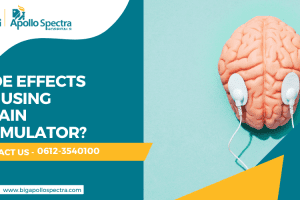Parkinson’s disease is a progressive neurological disorder which affects millions of people around the world while slowly deteriorating their movement capabilities and balance.
These conditions make everyday functioning increasingly challenging. Moreover, patients and their families face ongoing difficulties with this complex condition as they fight against the progressive loss of motor and cognitive functions.
Thus, the effective management of Parkinson’s disease requires understanding which factors lead to disease progression. This is important in order to maintain quality of life during this difficult journey.
Because curing Parkinson’s disease continues to be a significant medical hurdle, patients and their caregivers must learn about different elements that can intensify symptoms and accelerate disease progression.
What Worsens Parkinson’s Disease? 7 Triggers
Effective navigation through Parkinson’s disease requires thorough knowledge of elements that can intensify its symptoms.
The best neurologist in Patna can offer tailored insights for managing factors that worsen Parkinson’s disease symptoms. Different unique elements and trigger factors exist which have a substantial impact on how the disease progresses.
1. Medication Interactions
Medications prescribed for different medical conditions sometimes interact with Parkinson’s treatments leading to increased symptoms and decreased medication performance. Antipsychotic treatments alongside anti-nausea drugs and select calcium channel blockers produce significant disruptions in the absorption of dopamine while impairing neural messaging.
These possible interactions are the reason why patients need to actively collaborate with their healthcare provider to meticulously monitor their medication combinations. This is imperative to preserve the essential neurological balance required for Parkinson’s symptom management.
2. Sleep Disruptions
Patients may experience the worst symptoms of Parkinson’s disease and increased symptom severity when they suffer from chronic sleep disorders and inconsistent sleep patterns.
Sleep disruptions lead to increased motor symptoms while simultaneously causing cognitive function to decline. Sleep apnea along with insomnia and REM sleep behavior disorder represent significant challenges in the treatment.
Thus, effective management of sleep disturbances is essential for Parkinson’s care because these disruptions usually increase fatigue during the day and reduce medication efficacy while accelerating neuronal damage.
3. Inflammatory Conditions
The presence of chronic inflammation in the body has the potential to speed up neurodegenerative processes while intensifying symptoms which become more difficult to control.
Systemic inflammation activates neuroinflammation which accelerates damage to neurons that produce dopamine. Rheumatoid arthritis along with chronic infections and metabolic disorders play substantial roles in driving the inflammatory process.
Continuous immune system activation produces conditions that speed up neurological decline. All this means targeted inflammation management is essential to control Parkinson’s disease development.
4. Heavy Metal Exposure
The neurological deterioration process can potentially escalate due to extended exposure to specific environmental toxic substances and heavy metals.
Research shows that heavy metals including lead, mercury, and manganese damage brain cells through heightened oxidative stress and mitochondrial dysfunction. These neurotoxic substances can enter the body from industrial sites and polluted water supplies as well as specific occupational exposures.
Heavy metal accumulation disrupts dopamine production and speeds up neuronal damage, which can initiate or even intensify Parkinson’s symptoms; thus, proving the need for environmental awareness and protection.
5. Gut Microbiome Imbalances
Studies show that major disruptions to the gut microbiome have adverse effects on brain health while accelerating the progression of Parkinson’s disease.
The gut-brain axis functions as a central system in neurological processes because research also demonstrates how microbiome alterations can affect inflammation levels, neurotransmitter production along with neural communication pathways.
Microbial imbalance, known as dysbiosis, may lead to heightened neuroinflammation while decreasing medication absorption and speeding up neurological deterioration. Considering these factors, neurological health may very well benefit from probiotics combined with other dietary modifications and microbiome management approaches.
6. Chronic Stress
Persistent psychological stress activates neuroinflammatory reactions that may lead to faster symptom progression. Extended periods of stress also result in high cortisol levels that disrupt brain neurochemistry and enhance oxidative stress.
The biochemical cascade damages dopamine-producing neurons while worsening motor symptoms and may lead to a faster cognitive decline as well.
The continuous presence of stress affects both mental health and the neurological control systems essential for Parkinson’s disease management. This essentially means effective stress management is a critical part of complete patient care.
7. Nutritional Deficiencies
The absence of essential nutrients such as vitamins D, B12, and antioxidants can speed up neurological deterioration.
In fact, the lack of Vitamin D correlates with heightened inflammation levels and diminished neuroplasticity. Moreover, not having enough B12 in your body causes neurological harm and intensifies cognitive symptoms.
Augmenting these effects, when antioxidant levels fall short, the human body becomes less capable of defending neurons against oxidative stress.
Effective nutritional care for Parkinson’s patients extends beyond basic supplementation.
It, in fact, requires an integrated approach that evaluates each individual’s metabolic requirements and medication interactions alongside complete nutritional plans. These nutritional strategies should always be tailored according to your Parkinson’s disease symptoms and condition.
The Critical Importance of Early Detection and Modification
Early detection and modification play crucial roles in managing Parkinson’s disease effectively.
Addressing these factors early and managing them actively can greatly affect the severity of Parkinson’s symptoms.
Through collaborative efforts with your healthcare providers to pinpoint and address your triggers, you can experience slowed progression of Parkinson’s disease while preserving your quality of life. Key strategies for Parkinson’s patient management include systematic neurological evaluations combined with regular medication assessments and required lifestyle changes.
It becomes essential to track and manage each person’s specific risk factors. A balanced diet and stress management combined with proper sleep hygiene and physical activity suited to individual capabilities form essential parts of the treatment plan.
Having even a basic understanding of what aggravates Parkinson’s disease enables patients to manage their health journey effectively and more proactively.
Take Control of Your Path to Better Parkinson’s Management
People with Parkinson’s disease must prioritize comprehensive and specialized care. Big Apollo Spectra stands out as the best advance neuro hospital in Patna due to its state-of-the-art treatments and compassionate patient care.
Proactive and specialized support can dramatically improve Parkinson’s disease life expectancy for patients of this complex disease.
Remember, every individual’s Parkinson’s journey is unique. Effective management of this condition requires regular consultations with neurology specialists alongside staying informed and adopting a positive and proactive approach.




